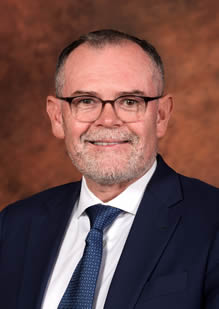Ocean biodiscovery highlight: cancer-fighting compound discovered in South African waters – what other secrets await us?
30 June 2025
- Potent anti-cancer compound found in local deep-sea species: Cephalostatin-1, extracted from a rare worm off South Africa's southern coast, is showing exceptional promise in the fight against cancer, including leukemia, by inhibiting cancer cell growth.
- Minister Dr Dion George calls for greater ocean protection: The discovery is being used to highlight the urgent need to preserve South Africa's marine ecosystems as a source of both health and economic opportunity.
- Marine research offers major job creation and innovation potential: The compound's discovery is catalysing new investment in biotechnology, pharmaceuticals, and scientific research in South Africa
The Department of Forestry, Fisheries and the Environment (DFFE) is proud to spotlight an extraordinary scientific breakthrough, that has been in the making for several years, from South Africa's deep-sea waters – one with the potential to save lives and boost our economy. Around 1990, scientists discovered Cephalostatin-1, a powerful anti-cancer compound found in Cephalodiscus gilchristi, a rare marine worm that lives in the pristine waters off our southern coast.
"This is a shining example of the treasures our oceans hold," said Minister of Forestry, Fisheries and the Environment, Dr Dion George. "But these gifts are under threat. Protecting our oceans is not just about conserving nature – it's about saving lives, creating jobs, and securing our future."
Cephalostatin-1 has been hailed by the United States National Cancer Institute as one of the most potent anti-cancer agents ever tested, showing significant success by demonstrating its potential to achieve selective killing of cancer cells. This discovery underscores the untapped potential of South Africa's marine biodiversity – and the critical need to keep these waters clean, healthy, and sustainably managed.
Beyond its health implications, the discovery of Cephalostatin-1 is opening doors for South African researchers, biotech innovators, and marine scientists. It's creating new opportunities in marine bioprospecting, pharmaceuticals, and sustainable development, while reinforcing South Africa's role as a leader in global medical research.
"Our oceans are a lifeline," the Minister added. "Every job created through marine research, and every life saved through discoveries like Cephalostatin-1, starts with protecting our waters."
The DFFE continues to take strong action to defend South Africa's marine ecosystems – from expanding marine protected areas to enforcing pollution control and sustainable fishing practices. These efforts help preserve the biodiversity that fuels scientific breakthroughs and supports communities who depend on the sea.
In partnership with academic and research institutions as well as global research bodies, the Department is committed to promoting responsible marine science and environmental stewardship. Discoveries like Cephalostatin-1 show that by protecting our oceans, we're also protecting our people.
For media enquiries, please contact:
Thobile Zulu-Molobi
Mobile: +27 82 513 7154
E-mail: tmolobi@dffe.gov.za
Chelsey Wilken
Mobile: +27 74 470 5996
E-mail: cwilken@dffe.gov.za
Twitter: @Environmentza / @Dr_Dion_George
Facebook: Department of Environmental Affairs
Instagram: Environmentza
LinkedIn: diontgeorge / Dr Dion George MP


